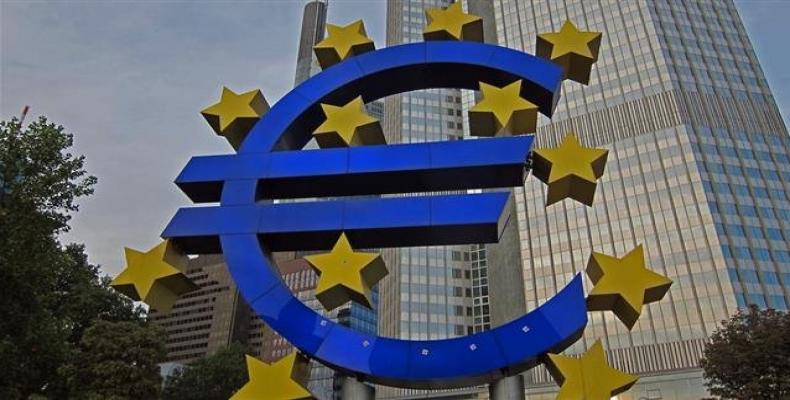Brussels, December 15 (RHC)-- A new survey shows that business growth in the eurozone has hit a four-year low in December amid concerns about a global trade war and the recent violent anti-government protests in France.
The survey, conducted by data firm IHS Markit, showed Friday that the composite eurozone PMI fell to 51.3 points from 52.7 points in November. However, a reading above 50 points indicates business is still growing.
According to IHS Markit, new business inflows almost stalled, job creation slipped to a two-year low and business optimism deteriorated. The IHS Markit's survey for France indicated that business in the country has flipped into reverse, with the index plunging to 49.3 in December from 54.2 in November.
Thousands of demonstrators wearing yellow vests have been gathering in major French cities since November 17 to initially protest President Emmanuel Macron’s controversial fuel tax hike — which he later dropped — and the high costs of living in France.
French authorities earlier said more than 1,700 protesters had been arrested and that 200 people, including 17 police forces, had been injured in confrontations during the protests.
"While some of the slowdown reflected disruptions to business and travel arising from the 'yellow vest' protests in France, the weaker picture also reflects growing evidence that the underlying rate of economic growth has slowed across the euro area as a whole," IHS Markit's Chief Business Economist Chris Williamson said.
Williamson noted that the data point to a weak economic expansion of 0.3 percent in the final quarter of 2018 for the eurozone.
He said data in December alone indicate that GDP growth is slowing to a 0.1 percent rate and forward-looking information, including orders and sentiment, show demand growth is stalling
The survey results come a day after the European Central Bank announced that it would halt its €2.6tn stimulus program in January despite concerns that the eurozone is poised to slow down over the next couple of years.
Mario Draghi, the ECB boss, warned that rising uncertainty had forced the bank to downgrade its outlook for the currency bloc next year and the effects would continue to be felt in 2020.
Draghi added that growth would be limited to 1.7 percent in 2019, “owing to the persistence of uncertainties related to geopolitical factors, the threat of protectionism, vulnerabilities in emerging markets and financial market volatility.”
Survey shows Eurozone growth hits 4-year low on trade worries and unrest in France


